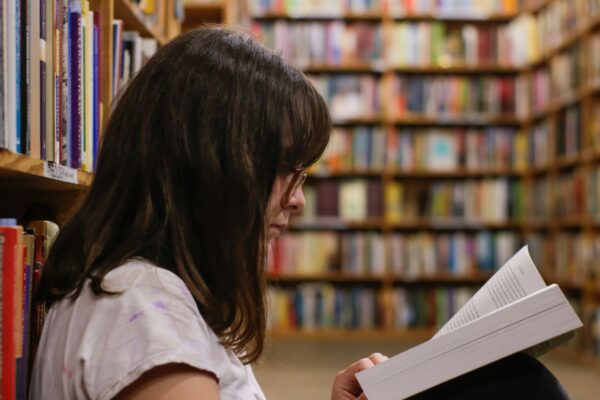In Iowa, books are being removed from classrooms and libraries in record numbers. This is because of a problematic book ban law, SF 496, that requires public schools K-12 to remove all books that have "descriptions or visual depictions of a sex act.” Combined with a provision that basically bans discussion or materials related to LGBTQ people and issues in grades K-6, nearly 500 books were removed from 37 school districts shortly after the law passed but the total number is unknown.
Some people are shrugging their shoulders and asking, why does it matter? Can’t kids get those same books and information at their town library, bookstore, or online? But young people having access to these books in schools is important. Here's why:
- When books are removed from libraries and classrooms, it sends a message to kids that the content is too shameful or dangerous to be explored. Many banned books include LGBTQ characters or are written by LGBTQ authors, or highlight themes tackling racial injustice or sexism. This can communicate to students that LGBTQ people, girls, or even racially diverse families aren’t equal or aren’t welcome or accepted in classrooms or anywhere else.
- Books can help students understand and accept themselves or people different from them. Removing these books creates a culture of fear and ignorance.
- Kids should be able to read books that show them what the real world is like in ways they can access at their developmental and reading level. In schools, students need to learn about important social, cultural, or political issues. Books help with that.
- Without teachers to guide them and discuss what they’re reading, students may instead to turn to the Internet and find inappropriate materials or misinformation. In schools, teachers and librarians choose age- and content-appropriate books for students. They also help kids understand different points of view and think about things carefully. Teachers can lead conversations, give explanations, and offer kids vetted resources to learn more.
- Yet another problem with Iowa's broad and badly written law is that schools have removed dozens of classics; 1984 by George Orwell, The Handmaid’s Tale by Margaret Atwood, and Ulysses by James Joyce are just some of the many banned books required for AP classes and other schoolwork. Students need easy access to these classics to receive a quality education that meets national standards.
- Moreover, this law makes it more difficult for children of lower socioeconomic means to access books. Instead of easily checking out a book from a school library, students must find transportation to their public library or have money to buy a book from a store. That takes additional time and resources that not all families have.
Education is supposed to broaden young minds. Forcing schools to remove hundreds of titles they already determined are valuable for young readers does exactly the opposite.

